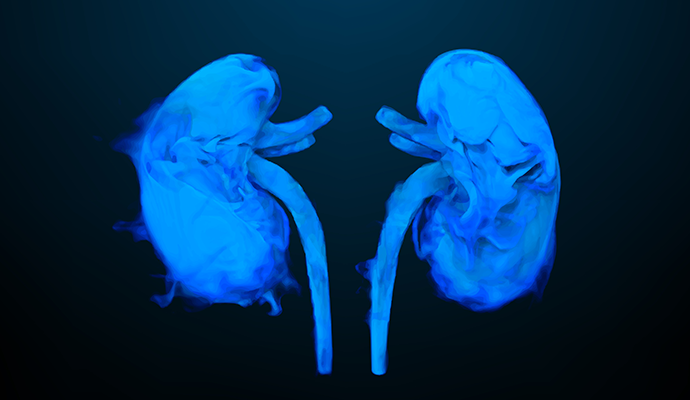In a world where prevention is key to our overall well-being, being able to recognize the early warning signs of chronic diseases can make all the difference in ensuring a healthy future. From subtle changes in our bodies to seemingly harmless symptoms that may indicate something more serious, learning how to identify and respond to these early signals is vital in taking control of our health. In this article, we’ll delve into the world of chronic diseases, exploring the red flags that may be hiding in plain sight and empowering you to proactively safeguard your health.

Recognizing Changes in Physical Health
Regularly monitoring and recognizing changes in your physical health can play a crucial role in early detection of chronic diseases. By paying attention to subtle signs and symptoms, you can take proactive steps to address potential health issues before they progress. Here are some key tips to help you identify early signs of chronic disease:
- Listen to your body: Be mindful of any unusual changes in your body, such as unexplained weight loss, persistent fatigue, or changes in bowel habits.
- Monitor your vital signs: Regularly check your blood pressure, blood sugar levels, and cholesterol levels to keep track of any potential risk factors for chronic diseases.
- Stay up to date with screenings: Attend regular health check-ups and screenings, such as mammograms, pap smears, and colonoscopies, to detect any signs of disease early on.
In addition to these tips, it’s important to maintain a healthy lifestyle by eating a balanced diet, exercising regularly, and managing stress. Remember, early detection is key in managing chronic diseases effectively, so don’t ignore any warning signs and always consult with your healthcare provider if you have any concerns. By taking a proactive approach to your health, you can increase your chances of early detection and improve your overall well-being.
| Key Tip | Importance |
| Listen to your body | Be aware of changes |
| Monitor your vital signs | Track potential risk factors |
| Stay up to date with screenings | Early detection of disease |
Understanding Risk Factors for Chronic Disease
If you want to stay on top of your health and catch potential chronic diseases early, it’s important to understand the risk factors associated with them. By recognizing these factors, you can take proactive steps to prevent or manage chronic conditions before they progress.
Some common risk factors for chronic diseases include:
- Family history: Genetics can play a significant role in the development of chronic diseases, so it’s important to be aware of any family history of conditions such as heart disease, diabetes, or cancer.
- Lifestyle choices: Smoking, poor diet, lack of exercise, and excessive alcohol consumption can all increase your risk of developing chronic diseases.
- Age: The risk of many chronic diseases increases with age, so it’s important to be especially vigilant about your health as you get older.
| Chronic Disease | Main Risk Factors |
|---|---|
| Heart Disease | High blood pressure, high cholesterol, smoking |
| Type 2 Diabetes | Obesity, sedentary lifestyle, family history |
| Cancer | Genetics, smoking, poor diet |
By understanding these risk factors and being proactive about your health, you can take control of your well-being and potentially prevent the development of chronic diseases. Remember, early detection is key, so don’t ignore any warning signs or symptoms that may indicate a potential health issue.
Importance of Regular Health Screenings
Regular health screenings are essential in detecting early signs of chronic diseases, allowing for timely intervention and treatment. By monitoring key health indicators through screenings, individuals can take proactive steps to maintain their well-being and prevent potentially serious health issues from developing.
Some of the most common chronic diseases that can be identified through regular health screenings include diabetes, hypertension, and certain types of cancer. Detecting these conditions early can significantly improve prognosis and quality of life. Additionally, screenings provide valuable information to healthcare providers, enabling them to tailor treatment plans to individual needs.
Regular health screenings also play a crucial role in promoting overall health and wellness. They help individuals stay informed about their health status, identify risk factors, and make informed decisions about lifestyle choices. By proactively monitoring their health, individuals can take control of their well-being and work towards achieving optimal health outcomes.
In conclusion, regular health screenings are a vital component of preventive healthcare. By prioritizing screenings and staying proactive about monitoring their health, individuals can detect early signs of chronic diseases, take appropriate actions, and ultimately improve their overall health and well-being. Remember, prevention is always better than cure!
Tips for Taking Control of Your Wellness
Recognizing Early Signs of Chronic Disease
One of the most important aspects of taking control of your wellness is being able to identify the early signs of chronic disease. By recognizing these signs early on, you can take proactive steps to manage your health and prevent further complications down the line.
Some common early signs of chronic disease include:
- Unexplained weight loss or gain
- Chronic fatigue
- Persistent pain or discomfort
- Changes in bowel habits
It’s important to listen to your body and pay attention to any changes or symptoms that persist over time. If you notice any of these signs, it’s important to consult with a healthcare professional for further evaluation and guidance.
As we wrap up our exploration of how to identify early signs of chronic disease, remember that knowledge is power when it comes to your health. By staying informed and attuned to your body’s signals, you can catch potential health issues early and take proactive steps to manage them. So listen to your body, pay attention to any warning signs, and don’t hesitate to seek medical advice if needed. Your wellbeing is worth it. Stay healthy, stay vigilant, and prioritize your wellness. Thank you for reading!



Comments are closed.